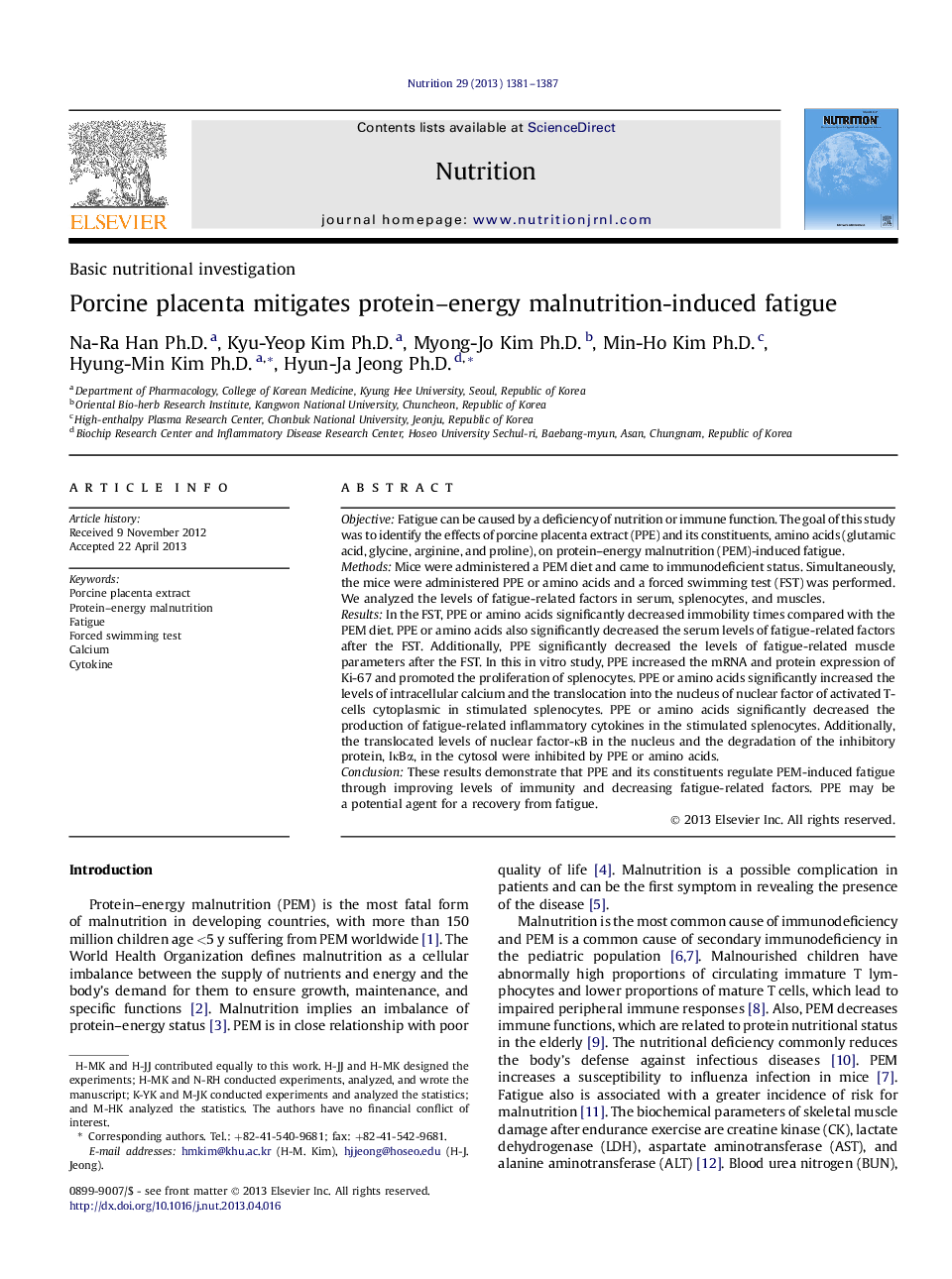| Article ID | Journal | Published Year | Pages | File Type |
|---|---|---|---|---|
| 6090010 | Nutrition | 2013 | 7 Pages |
ObjectiveFatigue can be caused by a deficiency of nutrition or immune function. The goal of this study was to identify the effects of porcine placenta extract (PPE) and its constituents, amino acids (glutamic acid, glycine, arginine, and proline), on protein-energy malnutrition (PEM)-induced fatigue.MethodsMice were administered a PEM diet and came to immunodeficient status. Simultaneously, the mice were administered PPE or amino acids and a forced swimming test (FST) was performed. We analyzed the levels of fatigue-related factors in serum, splenocytes, and muscles.ResultsIn the FST, PPE or amino acids significantly decreased immobility times compared with the PEM diet. PPE or amino acids also significantly decreased the serum levels of fatigue-related factors after the FST. Additionally, PPE significantly decreased the levels of fatigue-related muscle parameters after the FST. In this in vitro study, PPE increased the mRNA and protein expression of Ki-67 and promoted the proliferation of splenocytes. PPE or amino acids significantly increased the levels of intracellular calcium and the translocation into the nucleus of nuclear factor of activated T-cells cytoplasmic in stimulated splenocytes. PPE or amino acids significantly decreased the production of fatigue-related inflammatory cytokines in the stimulated splenocytes. Additionally, the translocated levels of nuclear factor-κB in the nucleus and the degradation of the inhibitory protein, IκBα, in the cytosol were inhibited by PPE or amino acids.ConclusionThese results demonstrate that PPE and its constituents regulate PEM-induced fatigue through improving levels of immunity and decreasing fatigue-related factors. PPE may be a potential agent for a recovery from fatigue.
